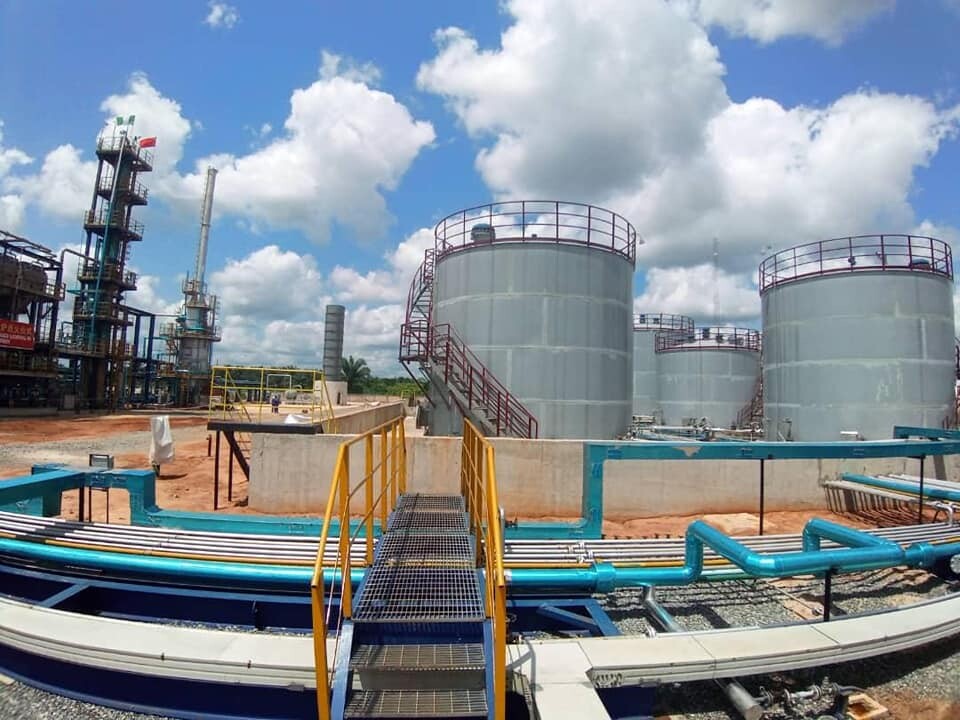The Edo Refinery, a small but crucial player in Nigeria’s energy sector, is in trouble. Despite having the capacity to produce 1,000 barrels of oil per day, the refinery can’t even begin operations because it hasn’t received the crude oil it needs. This situation is becoming increasingly frustrating for the refinery’s management, who are calling on the Nigerian National Petroleum Company Limited (NNPCL) to step up and deliver on its promises.
The refinery, located in Ologbo, Edo State, was built to help meet Nigeria’s demand for refined oil products and reduce reliance on imports. But since its completion, the refinery has been unable to function because it hasn’t received any crude oil. This is despite direct orders from President Bola Tinubu for the NNPCL to supply crude oil to both the Dangote Refinery and smaller modular refineries like the Edo Refinery.
Segun Okeni, a representative of AIPCC Energy Limited, the company that operates the Edo Refinery, explained that the refinery has had agreements in place with oil suppliers like Seplat and ND Western since 2022. Yet, due to what Okeni describes as “bureaucratic bottlenecks,” these agreements have not been fulfilled.
In 2021, the refinery’s management wrote to Mele Kyari, the Group CEO of NNPCL, after several meetings, asking for crude oil supply. Despite ongoing communication and even site inspections by NNPCL officials in 2022, the refinery is still waiting.
Okeni outlined the numerous attempts the refinery has made to get the crude oil it needs. In August 2021, the refinery’s chairman met with the top management of NNPCL to request crude oil supply. They followed this up with a formal letter in July 2022. By September of that year, the refinery was invited for commercial negotiations, after which it identified specific oil fields from which it could obtain crude. Yet, nothing has materialized.
The refinery has also reached out to the Ministry of Petroleum Resources and the NNPC Exploration and Production Limited (NEPL), highlighting their urgent need for crude oil. Despite all these efforts, the refinery remains idle.
Okeni expressed his frustration, pointing out that even though the refinery has existing agreements with companies like ND Western to obtain crude from the Ughelli Pumping Station, nothing has been done to make this happen. Meetings with other companies like Shoreline and Heritage Oil have also yielded no results.
The lack of action from NNPCL is not just a problem for Edo Refinery; it’s a problem for Nigeria. Okeni emphasized that if local investors like his company can’t get the resources they need, it will scare away foreign investors. The daily demand of all modular refineries in Nigeria is less than 2% of the country’s daily crude oil production. Yet, these small refineries are being overlooked, while bigger players like Dangote are prioritized.
The frustration is mounting as Edo Refinery is operating at less than 10% of its installed capacity. This is not just a missed opportunity for the company but for the entire country. Nigeria is losing millions of dollars because small modular refineries are not getting the crude oil they need to operate. These refineries could help reduce the nation’s dependence on imported refined products, save costs, and improve the local economy.
Okeni is now calling on NNPCL’s CEO, Mele Kyari, to intervene directly. He is urging the NNPCL to activate the agreement between Seplat and Edo Refinery so that the refinery can start lifting crude oil from the Oil Mining License. He also called for improvements in the infrastructure needed to load and transport crude oil, which would allow the refinery to function at its full capacity.
Without immediate action, Okeni warned that the situation could worsen, leading to even more economic losses and a further decline in investor confidence. He pointed out that even larger refineries like OPAC are struggling, operating at less than 3% of their capacity because of similar issues.
The challenges facing Edo Refinery highlight a broader problem within Nigeria’s oil industry. Despite being one of the world’s largest producers of crude oil, the country struggles to refine its oil locally. This has led to a reliance on imports, costing the nation billions of dollars each year.
Source: The Sun



